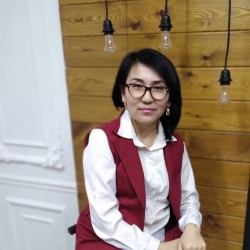Просмотр содержимого документа
«Auxiliary verbs/New words»

The aim of the lesson: 1. to get general information about auxiliary verbs 2. to get more information about wonders of the world.
The plan of the lesson:
- Grammar presentation
- Reading:Wonders of the modern world
- Speaking: dicussion-what`s the most important invention?
- Listening: three generations give their ideas about the wonders of the modern world
- Writing: correcting mistakes

Introduction to auxiliary verbs
There are three classes of verbs in English.
- The auxiliary verbs do, be, and have
These are used to form tenses, and to show forms such as questions and negatives.
2. Modal auxiliary verbs: must, can, should, might, will, and would. They have their own meanings. Ex, must expresses obligation and can express ability.
3. Full verbs: these are all other verbs in the language, ex; play, run,
help…
Do, be, and have can also be used as full verbs with their own meanings.
Do: I do my washing on Saturdays. What do you do? (the first is auxiliary the second is full verb )
Be: we are in class at the moment. They were at home yesterday. We want to be a teacher.
Have: He has a lot of problems. They have three children.

Questions and auxiliary verbs
- 1. to make a question, invert the subject and the auxiliary verb. If there is no auxiliary verb, use do/does/did
- She is wearing jeans. What is she wearing
- You aren`t working. Why aren`t you working?
- You were born in Paris. Where were you born?
- Peter`s been to China. Has Peter been to China?
- We have been studying. Have you been studying?
- I know you. Do you know me?
- He wants ice cream. What does he want?
- They didn`t go out. Why didn`t they go out?
- 2. there is usually no do/does/did in subject questions. Compare.
- Who wants ice cream? What flavour ice-cream do you want?
- What happened to your eye? What did you do to your eye?
- Who broke the window? Who did you break the window?

3.Short answers
- Did you watch the match last night?
- Did you watch the match last night?
1. we use short answers in English conversation because yes or no on its own can sound impolite. It helps if you can add some information.
- Yes, I did. It was great.
- Yes, I did. It was great.

Reply to these questions.
Do you like cooking?
No, I don`t. but I like eating.
Have you got any brothers or sisters?
Are you working hard?
Is it cold out today?
Have you ever been to Batken?

Match a question in A with a short answer I B and a line in C
A
B
- Do you like studying English?
No, I haven`t
C
It`s freezing.
Yes, I am
It`s my favourite subject.
Yes, I do,
- Are you staying at home this evening?
I couldn`t afford to.
No, I didn`t
- Did you go on holiday last summer?
Do you want to come round?
No. it isn`t
You can borrow mine if you want.



Read the text: Wonders of the modern world(p.10-11)
- Answer the questions.
- 1. What has changed because of the Internet? What will happen with the Internet?
- 2. What has happened in space exploration since 1969?
- 3. What is the most noticeable result of better health care?
- 4. What are the good and bad things about the Olimpics?
- In groups, discuss one of these questions:
- 1. What are your favourite websites?
- 2.When did you last travel by plane? Where were you going?
- 3. Are there any stories about health care in the news at the moment?
- 4.What sporting events are taking place now or in the near future?

p.12 Listen to three people from the same family saying what they think are the wonders of the modern world.
What is the wonder?
Sam:
dishwasher
What`s good about it?
Kelly:
Are there any problems?
Peter:

Writing: Correcting mistakes
- Dear Saltanat
- How are you? I`m well. I came in (prep) England two weeks ago for to (Gr) study at language school. I want _ learn e nglish (P) because _ is a very important language. I`m stay (Gr)with a (Gr) English family. They have got two son (Gr) and a daughter. Tom is _ teacher and Emma work (Gr) in a hospital.
- The Russian js (Gr) very kind, but they speak very quickly! I study in the morning. My teachers (P) name is Amy. She said me that my English is OK, but I do (ww) a lot of mistakes. Amy don`t (Gr) don`t give us too much homework, so in the afternoons I go always (wo) sightseeing. England is much more big (Gr) than my town.
- I like very much painting (WO) and I`m very interest ing (Gr) for (prep)modern art, so I visit galleries and museums. I`ve met a girl named Martina. She came (T) from Spain and go (Gr) to Trinity College. Last night we go to the cinema, but the film wasn`t very exciting (Sp).
- Do (ww) you like to visit me? Why don`t you come for weekend?
- I`d love to see you. Write to me soon.
- (T)-tense (Prep)-preposition (Gr)-Grammar (WO)-word order
- (ww)-wrong word (P)- punctuation (Sp)- Spelling (___)- word missing

Home work
- P.12 Headway
- Find three most important inventions which has changed the world the most.





























